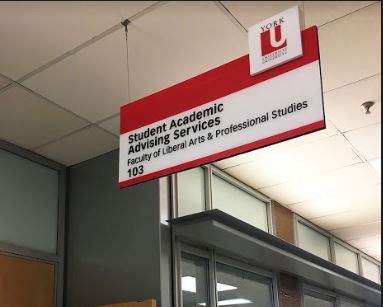Mahdis Habibinia | Executive Editor, Online
Featured Image: Academic Advising Services have become a second, if not third, option for some students. | Fatema Ali
Back in 2015, a bill was introduced in the state of Iowa that would rate university professors’ performances solely on student evaluations. This meant that poorly-rated professors would be fired without tenure or appeal.
Satisfaction surveys are not great indicators of a professors’ performance, but the bill highlighted the issue of students getting, or not getting, the most out of their post-secondary education.
State Senator Mark Chelgren, who introduced the bill, argued that too many students deal with loan debt but they’re not getting the equivalent value in their education. Universities are an institution so they are a business of sorts, yes. This would make students their clients of sorts, yes.
Students pay quite handsomely for their degrees but they’re not technically customers, either. They’re participants in an educational experience—one that is meant to challenge their opinions, support their academic aspirations, and pave their road to success.
The academic advising services at York are a second, if not third, option for some of us students. We specifically seek out and appreciate our program department’s directors and administrative staff first.
“We need people who actually give good advice and guidance in this time of our lives,” says a former Seneca-at-York student who wishes to remain anonymous.
So why do students trust and seek guidance from their program faculty as opposed to other sources? Simply because program faculty don’t treat our education as a business trade nor do they treat students as customers of a business, but rather as a means to achieving success for their students.
Professors and administrative staff in programs are at the core of student success; they prioritize student needs on their academic journey. When authority figures and the university look to operate as more of a business rather than a platform for learning, it shows students that post-secondary authority figures lack an understanding of the type of business they are actually running.
“Academic advising isn’t broadcasted properly. People in charge don’t really care that much. Maybe that’s why there are so many struggling students,” they add.
Program faculty have become buoys for students. Graduation, transcripts, and overall success are placed as a priority among most department faculty; advising services and other departments alike would do well in following their example.





it is all on you to make sure you are taking the right courses to finish on time. check the course calendar yourself and make sure you are on the right path.. and register early for courses you need to graduate and so you can have a better schedule that works well for you. it makes all the difference.